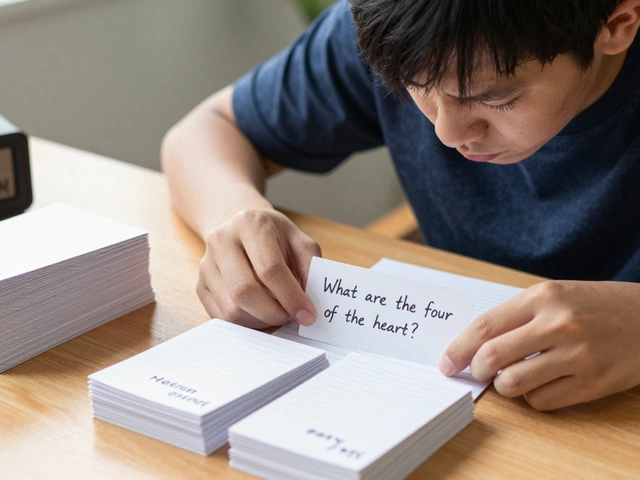Everyone hears about how you need stellar GCSEs to get into Oxford, right? But here's the kicker: it's not all about those darned grades. Sure, having great scores can make things smoother, but the magic isn't solely in the numbers. Oxford, unlike some other schools, really digs deeper. They're interested in who you are beyond the exam sheets.
So, what does that mean for someone with not-so-shiny GCSEs? Well, it's time to shift gears from despair to strategy. First up, let's talk personal statements. These are your golden tickets to spill the beans about your passion and what makes you tick. It's a chance to connect those dots between your interests and the course you're eyeing. If you've done something cool or unique outside of school, now's the time to brag a bit.
And then there's the interview. Oxford interviews can be nerve-wracking, but they are a splendid opportunity to show off your thinking skills. They're more interested in potential and curiosity than if you stumbled on a question or two in the past. Prepare to discuss topics you're passionate about and demonstrate your ability to think on the fly.
- The Role of GCSEs in Oxford Admissions
- Beyond Grades: What Oxford Looks For
- Personal Statements and Extracurriculars
- Nailing the Interview
- Alternative Pathways to Oxford
The Role of GCSEs in Oxford Admissions
Alright, let’s kick things off with the nuts and bolts of how GCSEs fit into Oxford's admission process. The idea that you need top-notch GCSE results to even have a shot at getting into this prestigious university isn't totally off base, but it’s not the whole story either. In truth, Oxford uses the GCSEs as just one piece of the bigger puzzle.
Usually, they look for a solid set of GCSEs because good grades are a handy indicator of academic ability. Let’s face it, courses at Oxford are intense, and they want to see you can handle the workload. But it’s not a strict cut-off. Admissions tutors are known to be flexible, especially if there's a good reason for less-than-perfect grades.
What’s more important? Context! Oxford loves a good story behind those scores. Were you ill during exams, facing personal challenges, or maybe you’ve improved massively in A-levels afterward? Get your teachers on board to write references that share this background.
Looking at the stats, according to Oxford's own data, about 80% of successful applicants have eight or more A*s at GCSE (or the equivalent in 9s/A grades). That sounds daunting, right? But remember, that leaves 20% who didn’t tick that box!
- It's not just grades—show growth and potential.
- Communicate any special circumstances through references.
- Prove you're bouncing back stronger in your A-level performance.
The takeaway? While GCSEs are important, they’re not the only key to the castle. Focus on showing how you’re a candidate with promise beyond those initial scores. There are plenty of chances to prove you’re up to the task through other parts of the application.
Beyond Grades: What Oxford Looks For
Getting into Oxford isn’t just about having perfect grades. Sure, scores like those make it easier, but they want the full package. So, let's dig into what they’re after beyond those shiny GCSE results.
First off, they're looking at your potential. Oxford admires candidates who showcase academic curiosity and a deep passion for their subject. What's important is how you think and how you express your ideas. They love students who can bring fresh thoughts to the table and aren't just regurgitating text from a book.
Your personal statement plays a crucial role here. It's the main stage where you highlight your intellectual interests and personal achievements. It gives them a peek into who you are, what motivates you, and why you're drawn to the course you've chosen. Make sure you’re honest and specific; don't just go for what you think they want to hear.
Then there're your extracurricular activities. Don't underestimate their importance. Whether it's a sport, music, or volunteering, these can showcase skills like leadership, commitment, and teamwork. Oxford is interested in well-rounded people who’ll contribute to university life outside of academics too.
Also, let's not forget the admission tests you might need to take for certain courses. These tests can demonstrate your skills and aptitude in a way that can sometimes outweigh poorer GCSE results. Put some effort into preparing for them—practice tests can be a great starting point.
Interesting fact: about 57% of applicants who successfully get into Oxford have participated in some form of extracurricular activity. These numbers show that having interests beyond academics can really bolster your application.

Personal Statements and Extracurriculars
Alright, you've got some catching up to do because of those bad GCSEs. Don't worry; the personal statement is your playground to shine. Oxford wants to see passion, drive, and a bit of personality in there. Think of it as your chance to tell your unique story—what specifically sparks your interest in your chosen field?
Here’s a tip: Tie your experiences to the course you’re applying for. If you’ve been involved in a project or hobby that relates to your study area, mention it. Have a knack for algorithms and spent weekends coding an app? That’s exactly the kind of story you want to tell.
"The personal statement is your opportunity to differentiate yourself from others applying for the same course. It should give a clear sense of who you are and why you’re keen to study at Oxford." - Oxford University's Admissions Guide
Next up, don’t underestimate the power of extracurriculars. Did you volunteer, take part in competitions, or maybe lead a club at school? Those activities can be golden. They show Oxford that you’re proactive and can handle responsibilities outside the classroom.
- Volunteering: Shows empathy and a sense of community.
- Competitions: Highlight your ability to face challenges.
- Leadership roles: Demonstrate initiative and project management skills.
And let’s not forget about being sincere. Keep it real in your personal statement. Exaggerations or fibs aren’t going to fly under their radar. Present honest accounts; they’ll appreciate your authenticity.
Oh, and here's a sneaky add-on: If you've taken additional courses or workshops outside school, those can boost your application too. Online courses have become quite the deal and Oxford recognizes effort put into learning beyond what's compulsory.
Nailing the Interview
So you've made it to the interview stage for Oxford. That's a huge deal and means they're interested in what you've got to offer. But let's be real—interviews can be nerve-wracking, especially when it's a big name like Oxford. No worries, though! You can absolutely prep yourself to shine.
First up, understand that these interviews are more about your thought process than getting the 'right' answer. They're looking for potential, intellectual curiosity, and how you approach problems. You’re more than just GCSEs now; let your passion for your subject do the talking.
Here’s some friendly advice to get your foot in the door triumphantly:
- Know your stuff: Revisit your application, particularly your personal statement. They might quiz you on something you've mentioned, especially if it’s a unique interest or project. Make sure you’re familiar with current trends or debates related to your course.
- Practice makes perfect: Simulate the interview setting with friends or a mentor. Get used to articulating your thoughts out loud. The more you practice, the more natural you'll feel when it's go-time.
- Stay informed: Read up on recent developments or research in your field. Being able to draw connections to contemporary issues can really impress your interviewers.
- Be yourself: Sounds cheesy, but genuinely—don’t try to portray someone you’re not. Authenticity can be your strongest asset in standing out.
The interview is your moment to demonstrate the depth of your enthusiasm and potential to contribute to Oxford’s community. While the focus might not be on your previous bad GCSEs, show them you've got grit and the drive to thrive.
Remember, the goal isn’t just to answer questions; it's to engage in a meaningful discussion. They want to see how you think, so be ready to express your reasoning and consider alternative viewpoints.

Alternative Pathways to Oxford
If you're wondering if a door slammed shut because of your bad GCSEs, you're not seeing the whole picture. There are other routes that can lead you to the dreaming spires of Oxford, even if your school results weren't top-notch.
Let’s start with foundation courses. These are a stepping stone meant exactly for folks who maybe didn't get all the qualifications they'd hoped for at GCSE level. A foundation year is like a pre-university course, and many universities, including some Oxford colleges, offer them. It's a tight ship, but with dedication, it could ease your path to the real deal.
You might also look into further education colleges offering Access to Higher Education courses. These are designed specifically for people who missed out the first time around. These courses can give you the skills and knowledge to apply to Oxford or other top universities once completed successfully.
Another approach? Consider re-sitting your GCSEs. It's not glamorous, but if you think you can boost those grades, it may be worth the shot. Pair that with strong A-level results, and you'll show Oxford you mean business.
Here’s where scholarships and sponsorships come into play, too. Some scholarships aren't really interested in your past numbers but focus on your future potential. They care about passion, innovation, and drive, and they could help you present a compelling case for your application.
If you need more convincing, check out this snippet:
| Pathway Option | Pros | Cons |
|---|---|---|
| Foundation Year | Tailored for prep; strong start | Extra year of study |
| Access to Higher Ed | Geared toward non-traditional students | Often intense and compact |
| GCSE Resits | Improve core qualifications | Time and effort to retake |
Whatever you pick, remember the endgame isn't just numbers. It's about proving you have the grit, the thoughtfulness, and the curiosity Oxford looks for. So roll up those sleeves—it might just be the best thing you ever do.






